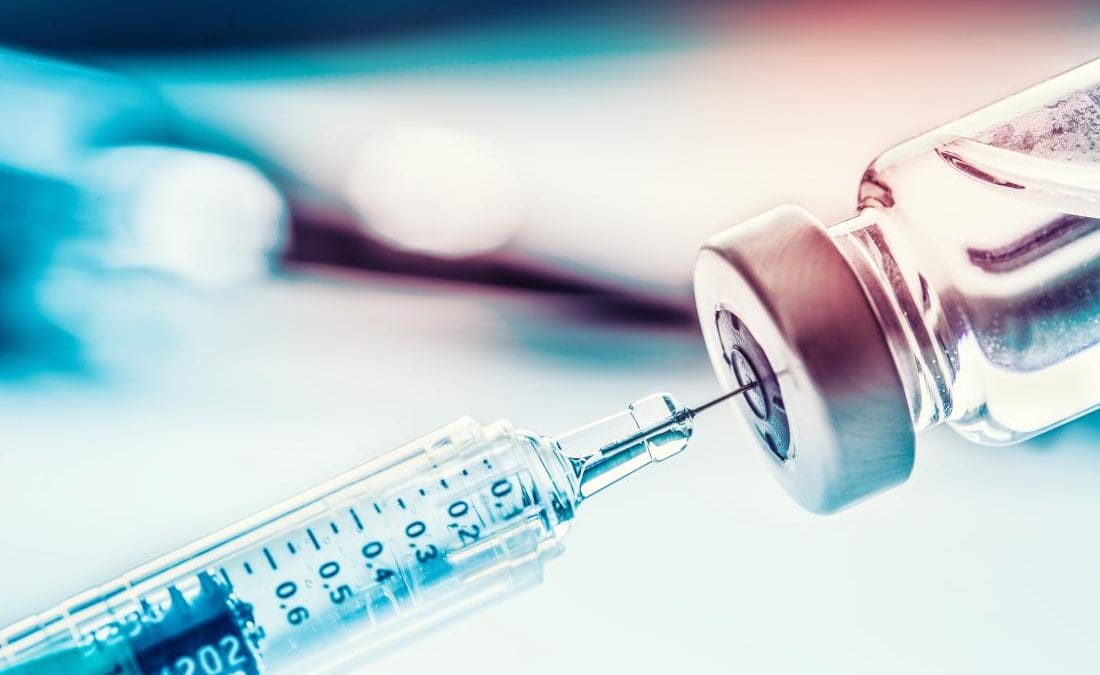Just 4% of people still to decide whether they will get vaccinated for COVID-19, says Ipsos MRBI tracker survey for IPHA


Just 4% of people still to decide whether they will get vaccinated for COVID-19, says Ipsos MRBI tracker survey for IPHA
- Hesitancy over COVID-19 vaccine wanes, with those ‘unsure’ down 14 points since January
- Public appetite for COVID-19 vaccine rises to 89%, with 6% saying they would refuse a vaccine
- Industry urges support for stable innovation policy to tackle variants and spur scientific breakthroughs
Just 4% of people say they are unsure whether they will get vaccinated for COVID-19 – down by 14 points since January, according to the results of the latest tracker survey by Ipsos MRBI for the Irish Pharmaceutical Healthcare Association (IPHA) which represents the international research-based biopharmaceutical industry.
The number of people who either intend to get vaccinated for COVID-19, or who have already received a vaccine for the disease, has risen to 89%. The results show that 34% of people will take a COVID-19 vaccine. But when combined with those who have received a COVID-19 vaccine, or 55% of the sample*, that number rises to 89%.
Between January and June, the number of people who said they either won’t get vaccinated for COVID-19 or were unsure about taking a vaccine has declined. In January, 7% said they would refuse a COVID-19 vaccine and 18% were unsure. This month, 6% overall say they will refuse a COVID-19 vaccine and 4% are unsure.
The results come as people between 35 and 39 can register for COVID-19 vaccination. Last week, the health authorities administered about 320,000 doses of COVID-19 vaccine.
Bernard Mallee, Director of Communications and Advocacy at IPHA, said: “Our health services have responded with pace and efficiency to the enormous challenge of rolling out a mass vaccination programme. They deserve huge credit for that. Equally, the global scientific community, and the experts working in biopharmaceutical manufacturing, have been able to discover and make safe and effective vaccines to contain the spread of COVID-19.
“Scientists are working hard to find answers for variants of concern. Like with all medicines, vaccines and technologies, breakthroughs happen because inventions are protected by intellectual property rights.
“In policy debates at European and global levels, we must protect these rights which, for many years, have spurred the development of new medicines for serious diseases. Waiving intellectual property rights will make no difference to supply. Vaccines-makers are already onboarding suitable production partners and investing in their own sites to surge supply. Ireland, recognised as a medicines manufacturing powerhouse, must be on the side of science, knowing that health outcomes and jobs depend on the best environment for innovation.”
Vaccination is a global health and development success story, saving millions of lives every year. We have vaccines to prevent more than 20 life-threatening diseases, helping people of all ages live longer, healthier lives. Vaccines administered in Ireland help to prevent 13 diseases including measles, meningitis and whooping cough. Now, we are on a path towards adding COVID-19 to the list. The World Health Organisation estimates that vaccines save up to three million lives every year.
With the exception of clean, safe drinking water, vaccination is one of the most successful and cost-effective public health interventions ever. Vaccines have ridded the world of smallpox, driven polio to the brink of eradication, and virtually eliminated measles, diphtheria and rubella in many parts of the world.
ENDS
About The Survey
Ipsos MRBI conducted 1,006 telephone interviews with adults aged over 18 between May 31st and June 14th, 2021. The sample was nationally representative for age, gender, geography and social class. *These figures reflect a point-in-time measure of COVID-19 vaccine uptake and they are accurate for the survey fieldwork period. However, the proportion that has received a COVID-19 vaccine is liable to change rapidly as rollout of the vaccination programme progresses.


